Hunan Dragon Boat Festival
2016-12-20 16:49:26 Zhangjiajie Tourism Information Website
The Origin of the Duanwu Festival(Dragon Boat Festival)
Dragon Boat Festival is a traditional Chinese festival. It has a profound history of more than two thousand years. Chinese people call Dragon Boat Festival "Duanwu Festival", as "Duan" means the beginning of May and "Wu", which is pronounced the same as "five" in Chinese, means the fifth day. In other words, the fifth day of the fifth lunar month is Dragon Boat Festival.

Although there are a lot of versions of the origin of Dragon Boat Festival, it is generally believed that the legend of Dragon Boat Festival is related to a historical figure: Qu Yuan. Qu was an official and patriotic poet of the state of Chu in the Warring States Period. Intelligent as he was, he became a senior state official when he was 25 years old. His capability won the recognition of King Huai of Chu (reigned 328-288 BC). Qu was said to have advocated a policy of alliance with the other kingdoms of the period against the hegemonic Qin state, which threatened to dominate them all. However, the king fell under the influence of other corrupt, jealous ministers who slandered Qu Yuan and banished his most loyal counselors. Consequently, the king became estranged from Qu and he banished Qu from the capital of Chu finally. In 278 BC, learning of the capture of his country's capital, Ying, by General Bai Qi of the state of Qin, Qu Yuan is said to have written the lengthy poem of lamentation called "Lament for Ying" and later to have waded into the Miluo River in today's Hunan Province holding a great rock in order to commit ritual suicide. That day was the fifth day of the fifth lunar month.
When people heard the news that Qu Yuan was dead, they were so grieved that they rowed to get his body, but failed. Since then people rowed dragon boats on river to mourn for Qu Yuan. To save the body from fish, people began to throw rice into Miluo River to distract the attention of fish. Hearsay has it that people dreamt that Qu Yuan told them to wrap the rice with leaves and fasten it with threads so as to frighten fish away. Thus, zongzi came into being and had been passed down.
Today, eating zongzi and rowing dragon boats have been characteristic customs of Dragon Boat Festival.
Qu Yuan
Qu Yuan (340 BC - 278 BC) was a Chinese patriotic poet from south Chu during the Warring States Period. His works are mostly found in an anthology of poetry known as Chu Ci. His death is commemorated on Duan Wu, commonly known as the Dragon Boat Festival.
Qu Yuan, born in the Xiling Gorge area of what is today western Hubei Province, was a minister of the State of Chu situated in present-day Hunan and Hubei Provinces, during the Warring States Period (475BC-221BC). He was descended from nobility and was a champion of political loyalty and truth eager to maintain the Chu state's power. Qu Yuan advocated a policy of alliance with the other kingdoms of the period against the hegemonic state of Qin, which threatened to dominate them all. Legend has it that the Chu king fell under the influence of other corrupt, jealous ministers who slandered Qu Yuan and banished most of his loyal counselors. It is said that Qu Yuan returned first to his family's home town. In his exile, he spent much of his time collecting legends and rearranging folk tales while travelling around the countryside, producing some of the greatest poetry in Chinese literature and expressing fervent love for his state and his deepest concerns for its future.
According to legend, his anxiety brought him to an increasingly troubled state of health; during his depression, he would often take walks near a certain well, during which he would look upon his reflection in the water and his own person, thin and gaunt. According to legend, this well became known as "Face Reflection Well." Today on a hillside in Xiangluping in Hubei Province's Zigui, there is a well which is considered to be the original well from the time of Qu Yuan.
In 278 BC, learning of the capture of his country's capital, Ying, by General Bai Qi of the state of Qin, Qu Yuan is said to have written the lengthy poem of lamentation called "Lament for Ying" and later to have waded into the Miluo river in today's Hunan Province holding a great rock in order to commit ritual suicide as a form of protest against the corruption of the era.
The villagers, learning of his suicide, rushed out in their fishing boats to the middle of the river and tried desperately to save him. They beat drums and splashed water with their paddles in order to keep the fish and evil spirits from his body, and later on, they scattered rice into the water to prevent him from suffering hunger and also to feed the fish in the river so that they would not devour his body.
However, late one night, the spirit of Qu Yuan appeared before his friends and told them that the rice meant for him was being intercepted by a huge river dragon. He asked his friends to wrap their rice into three-cornered silk packages to ward off the dragon. This has been a traditional food ever since known as zongzi, although the lumps of rice are wrapped in bamboo leaves instead of silk. The act of searching for his body in the boats gradually turned into the traditional dragon boat race, which is held every year on the day of his suicide.
People today still eat rice dumplings and participate in dragon boat races to commemorate him on the Duan Wu Festival, the fifth day of the fifth month of the Chinese lunar calendar.
Qu Yuan is generally recognized as the first great Chinese poet. He initiated the style of Sao, which is named after his work Li Sao, in which he abandoned the classic four-character verses used in poems of Shi Jing and adopted verses with varying lengths, which gives more rhythm and latitude in expression. Qu Yuan is also regarded as one of the most prominent figures of Romanticism in Chinese literature, and his masterpieces influenced some of the greatest Romantic poets in the Tang Dynasty such as Li Bai and Du Fu.
Other than his literary influence, Qu Yuan is also held as the earliest patriotic poet in Chinese history. His political idealism and unbendable patriotism have served as the model for Chinese intellectuals until today.
Scholars have debated the authenticity of several of Qu Yuan's works since the Western Han dynasty (202BC--9AD). The most authoritative historical record, Sima Qian's Records of the Grand Historian (Shi Ji) mentions five of Qu Yuan's works:
Li Sao, Tian Wen, Zhao Hun, Ai Ying ("Lament for Ying") and Huai Sha.
Dragon Boat Race

Dragon Boat Race,a highlight for the festival, first appeared in the Warring States Period (476-221 BC).At that time, it was only a sacrificial activity. Among the rapid drum, the dragon-like canoes cross the river like hot cakes, not only entertaining the gods but also bringing pleasure for people. Later people held Dragon Boat Race to memorialize the poet Qu Yuan who drowned himself in a river. Now Dragon Boat Race is a traditional entertainment for Chinese people.
Eating Zongzi
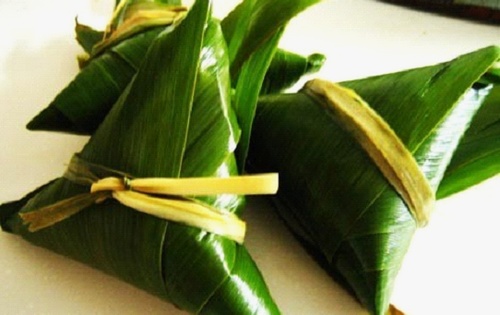
Zongzi, a glutinous rice dumpling, the major food and gift for the festival, is popular around the world. The rice dumpling is a kind of food with various designs and styles: in North China, the Beijing date rice dumpling is always wrapped with small Chinese dates; while in South China, the rice dumplings are often stuffed with diversified materials, such as sweetened bean paste, fresh meat, ham and yolk, among which the "Wufangzhai" rice dumplings in Jiaxing, Zhejiang province are the most famous. For thousands of years, the custom of eating rice dumplings has always been prevailing in China and it has spread to Korea, Japan and countries in Southeast Asia. Besides, there are also different conventions like drinking realgar wine and wearing sachet.
Wearing Scented Sachets
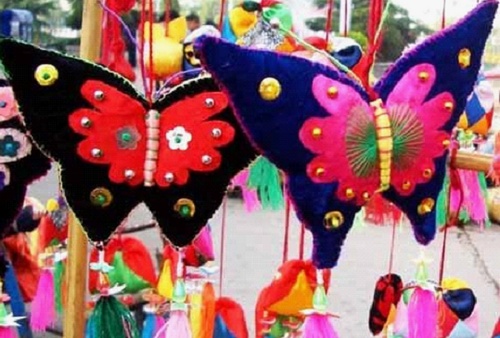
On the Dragon Boat Festival, children normally wear scented sachets to ward off evil. A scented sachet is an ornament worn on the front of the dress. The sweet-smelling sachet contains cinnabar, realgar and aromatic herbs etc. It is usually wrapped in a silk cloth, sometimes embroidered with exquisite patterns. And multicolor silk threads are attached to the sachet as tassels, making the sachet more appealing. In some areas of China, a scented sachet is also used as a love token between young lovers.
Source: Hunan Official Web Portal
-
Zhangjiajie package service for family self-help tourism5D 4N $0.00¥0.00
-
3N4D Zhangjiajie mountaintop staying for highlight sunrise tour4D 3N $241.74¥1580.00
-
4D3N Family tour to ZJJ avatar park-Grand cayon-Glass bridge-Tianmenshan4D 3N $302.94¥1980.00
-
3N4D Group tour for Zhangjiajie rock climbing tour in avatar park4D 3N $0.00¥0.00
more FAQ
- 1About Full introduction for Zhangjiajie Glass Plank Road
- 2What is Zhangjiajie's sister World Geopark?
- 3Top 5 places for Zhangjiajie winter tour
- 4Zhangjiajie top 5 hiking places
- 5Zhangjiajie's best places for sunrise & sunset tour
- 6Do you know about Zhangjiajie cultural heritage?
- 7Zhangjiajie travel entrance fee,cableway,elevator,sightseeing train cost
- 8Hunan Province Weather Profile




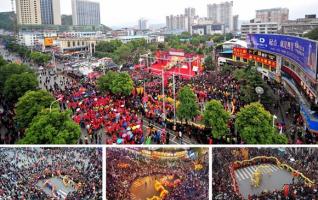







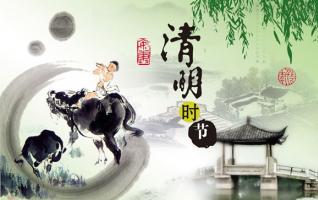
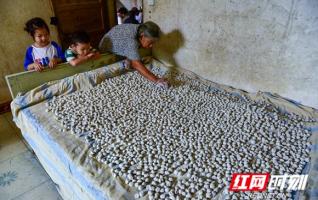
![Top food recommendation for Hunan tourism[Photo Gallery]](http://www.zjjbk.com/uploadfile/2017/0521/thumb_318_200_20170521042544645.jpg)
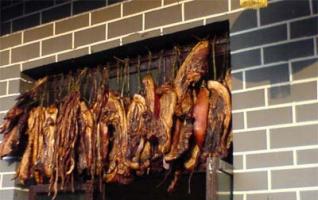
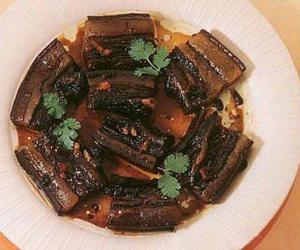
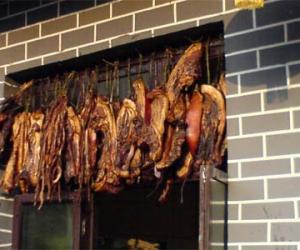
![Zhangjiajie old method of producing vegetable oil[Photo-step process]](http://www.zjjbk.com/uploadfile/2016/1220/thumb_318_200_20161220044619231.jpg)

